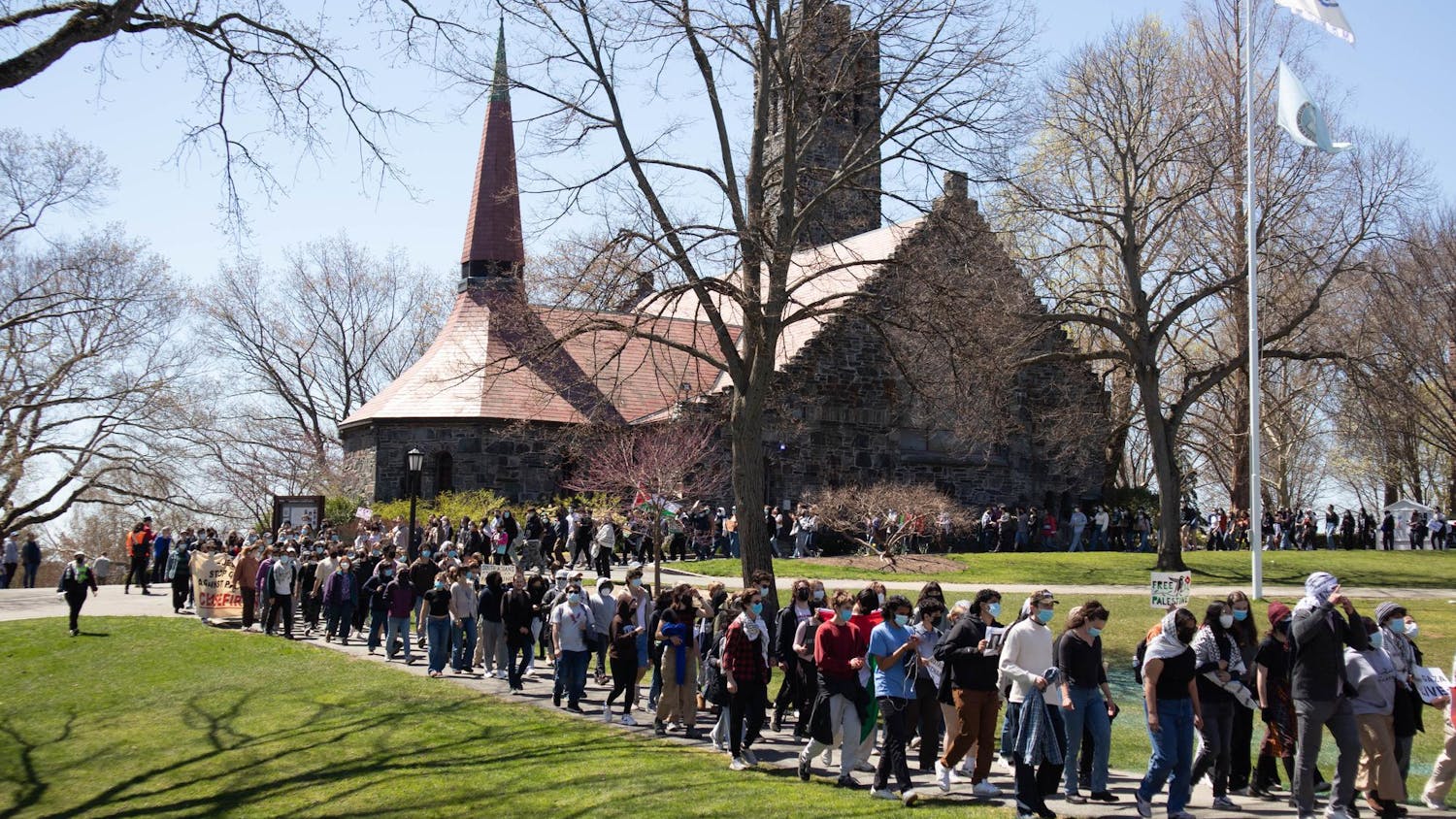Twenty-two freshmen college acceptances this year were not as simple as a "Congratulations!" letter from Dean of Undergraduate Admissions Lee Coffin. The start to these students' Tufts education hinged on their enrollment in Bridge to Liberal Arts Success (BLAST) - a program involving two university courses taken during one six-week summer session before the academic year began.
Similar to the Bridge to Engineering Success at Tufts (BEST) program for the School of Engineering, BLAST seeks to prepare incoming freshmen in the School of Arts and Sciences for what could otherwise be a more difficult academic transition to higher education, Dean of Arts and Sciences Joanne Berger-Sweeney said.
The program provides targeted support for incoming freshmen from different backgrounds, including first generation college students and those who went to a high school without Advanced Placement (AP) classes.
"Many of the students who come from very strong suburban high schools come in with a lot of AP credits, so if they have to drop a course it's really not a big deal," Berger-Sweeney said. "By these [BLAST] students coming in and being able to take two college courses, they have a bit of cushion to level the playing field."
In its pilot phase this summer, students lived in Hill Hall and took classes from Professor of History David Proctor and Professor of Mathematics Kim Ruane four days a week, according to freshman and BLAST participant Jose Caballero Ortega.
Students also had the opportunity to meet with deans, faculty, staff and student group leaders for lunch, according to BLAST Director and Associate Dean of Undergraduate Education Robert Mack.
"We try to put in enough pieces throughout the summer so we feel we're helping the students with the transition to higher education," Mack said. "Even over the summer, it was clear the students had felt success in terms of being here because they knew, when they came back, that although they're first year students, they won't be totally naive to what's going on."
Caballero Ortega said that the students ventured to the Loj during their first weekend on campus, where they bonded just like a pre-orientation Freshman Orientation Community Service or Tufts Wilderness Orientation "family."
"Before the Loj, we weren't that close because it was just 22 strangers taking class together," Caballero Ortega said. "From there on we just worked things together out as a team. Now I see BLAST as my second family."
Whether it was through tutoring a confused peer or editing a friend's essay, Caballero Ortega said his fellow BLAST students became his support system to tackle the intense workload.
"The program was not what I was expecting," Caballero Ortega said. "At first I was not so excited about the program because it was my last summer at home. But I really saw the benefits of it."
Proctor, who taught the BLAST course History 54: Europe from the time of the French Revolution, said he focused on essay-based assignments in his class to help prepare the students for college-level writing assignments.
"All Tufts students are highly motivated, but the BLAST students were extraordinarily so," Proctor said. "The level of intensity and the desire of the students to get so much out of the course I was not expecting, but really enjoyed."
When freshman orientation began in August, BLAST students returned to campus reunited as members of the same pre-major advising group. They also met each week of the semester for a class about research and leadership led by Mack.
"Since they came back, it's been a continual happiness about not starting at ground zero," Mack said. "A lot of the work that we're doing will focus on those two areas and gives me the chance to check in with them."





